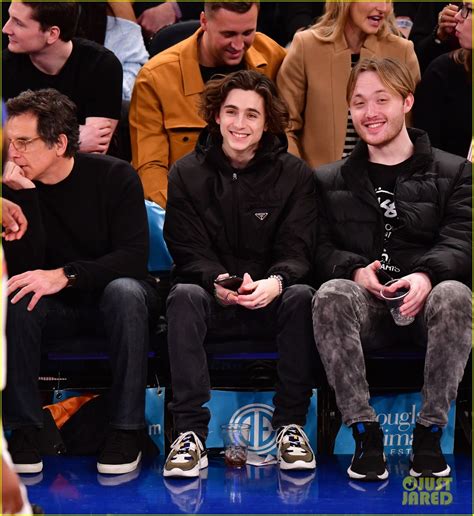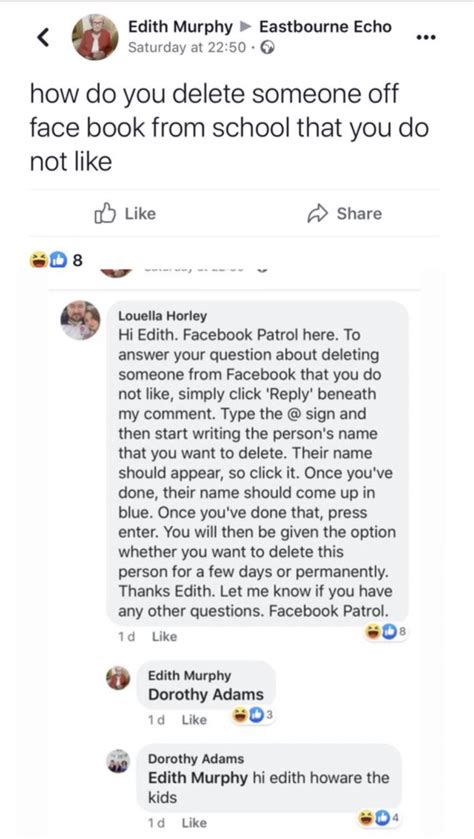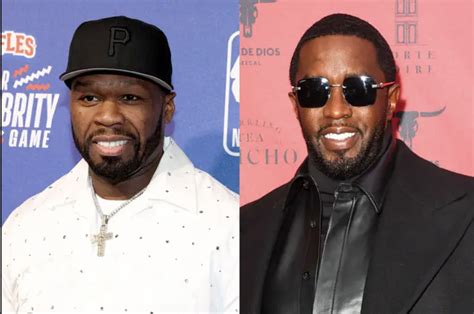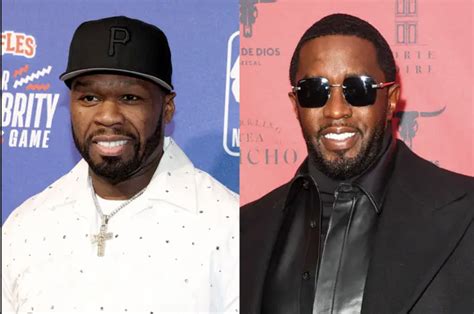
Ben Stiller, Timothée Chalamet, and Spike Lee, frequently courtside fixtures at New York Knicks games, found themselves the subject of unsolicited commentary and criticism during a recent broadcast, with particular attention directed at Stiller. Analyst Pat McAfee took jabs at Stiller’s appearance and demeanor, igniting a wave of reactions online and prompting discussions about the appropriateness of such on-air remarks.
The incident unfolded during a Knicks game broadcast, where McAfee, known for his often unfiltered commentary, turned his attention to the celebrity-studded courtside seats. While Chalamet and Lee received relatively benign acknowledgment, Stiller became the primary target of McAfee’s remarks. McAfee critiqued Stiller’s perceived lack of enthusiasm and what he deemed an overall “miserable” disposition, comments that quickly circulated across social media platforms, drawing both support and condemnation.
The backlash against McAfee’s commentary was swift and multifaceted. Many viewers and online commentators argued that McAfee’s remarks were unprofessional and unwarranted, suggesting that critiquing someone’s personal demeanor during a professional broadcast crossed ethical lines. Others defended McAfee, characterizing his comments as light-hearted banter and part of his established on-air persona. The debate highlighted the growing intersection of sports, entertainment, and social media, where celebrity appearances at sporting events often become fodder for public discourse and critique.
The incident also sparked a broader discussion about the responsibilities of commentators and analysts in the age of social media. With platforms like Twitter and Instagram amplifying every comment and observation, analysts face increased scrutiny and pressure to balance entertainment with responsible journalism. The Stiller-McAfee episode serves as a case study in how seemingly innocuous on-air remarks can quickly escalate into widespread controversy, prompting reflection on the role of media personalities in shaping public perception.
Adding fuel to the fire, some commentators also pointed out the potential for bias in McAfee’s remarks, suggesting that his commentary may have been influenced by personal preferences or preconceived notions about Stiller. While such claims remain speculative, they underscore the importance of impartiality in broadcasting and the potential for personal biases to inadvertently shape on-air narratives. The controversy has raised questions about the role of celebrity in sports culture and the extent to which public figures are subject to commentary and critique.
The Stiller-McAfee incident is not isolated. It is part of a larger trend of increased scrutiny and commentary surrounding celebrity appearances at sporting events. In an era where social media amplifies every moment, celebrities who attend high-profile games are increasingly vulnerable to public critique and analysis. This trend has implications for both celebrities and media personalities, forcing them to navigate the complex intersection of sports, entertainment, and social media.
Context and Background
Ben Stiller, Timothée Chalamet, and Spike Lee are all well-known figures who are frequently seen courtside at New York Knicks games. Their presence adds to the celebrity cachet of these events, attracting media attention and enhancing the overall atmosphere. Stiller, in particular, has been a long-time Knicks fan and has often been photographed at games, displaying varying degrees of enthusiasm depending on the team’s performance.
Pat McAfee, a former NFL punter, has transitioned into a successful media personality, known for his often unfiltered and humorous commentary. He hosts “The Pat McAfee Show,” a popular sports talk program that covers a wide range of topics, from professional football to current events. McAfee’s style is often characterized as irreverent and unconventional, which has both attracted a large following and drawn criticism from those who find his commentary inappropriate or insensitive.
The intersection of sports and entertainment has become increasingly prominent in recent years, with celebrities often attending sporting events to support their favorite teams and enjoy the atmosphere. These appearances generate media coverage and contribute to the overall spectacle of professional sports. However, they also make celebrities vulnerable to public scrutiny and critique, as their actions and expressions are often captured and disseminated through social media.
The Specifics of the Incident
During the Knicks game broadcast, McAfee turned his attention to the courtside seats, where Stiller, Chalamet, and Lee were sitting. While he acknowledged Chalamet and Lee with relatively benign comments, McAfee focused his critique on Stiller. According to various reports and social media posts, McAfee commented on Stiller’s perceived lack of enthusiasm, suggesting that he looked “miserable” and “unengaged.”
“I’m not sure what’s going on with Ben Stiller, but he looks like he’s having a terrible time,” McAfee reportedly said during the broadcast. “Maybe he’s just a grumpy guy, but he doesn’t seem to be enjoying himself at all.”
These comments quickly circulated on social media, sparking a range of reactions. Some viewers agreed with McAfee’s assessment, suggesting that Stiller did indeed appear to be unhappy. Others defended Stiller, arguing that it was inappropriate for McAfee to comment on his personal demeanor.
The Reactions and Fallout
The backlash against McAfee’s commentary was swift and multifaceted. Many viewers and online commentators argued that McAfee’s remarks were unprofessional and unwarranted, suggesting that critiquing someone’s personal demeanor during a professional broadcast crossed ethical lines.
“It’s one thing to analyze a player’s performance, but it’s another thing entirely to comment on someone’s personal demeanor,” one Twitter user wrote. “McAfee’s comments about Stiller were completely inappropriate.”
Others defended McAfee, characterizing his comments as light-hearted banter and part of his established on-air persona. They argued that McAfee was simply making an observation and that Stiller, as a public figure, should expect to be the subject of commentary.
“McAfee is just being McAfee,” another Twitter user wrote. “He’s a comedian and an entertainer, and his comments about Stiller were clearly meant to be humorous.”
The debate highlighted the growing intersection of sports, entertainment, and social media, where celebrity appearances at sporting events often become fodder for public discourse and critique. The incident also sparked a broader discussion about the responsibilities of commentators and analysts in the age of social media.
Ethical Considerations for Commentators
With platforms like Twitter and Instagram amplifying every comment and observation, analysts face increased scrutiny and pressure to balance entertainment with responsible journalism. The Stiller-McAfee episode serves as a case study in how seemingly innocuous on-air remarks can quickly escalate into widespread controversy, prompting reflection on the role of media personalities in shaping public perception.
Ethical considerations for commentators include:
- Professionalism: Commentators should maintain a professional demeanor at all times, avoiding personal attacks or inappropriate remarks.
- Objectivity: Commentators should strive to be objective in their analysis, avoiding bias or favoritism.
- Respect: Commentators should treat all individuals with respect, regardless of their status or background.
- Accuracy: Commentators should ensure that their comments are accurate and based on factual information.
- Responsibility: Commentators should be aware of the potential impact of their words and take responsibility for their actions.
The Stiller-McAfee incident underscores the importance of these ethical considerations and highlights the challenges that commentators face in the age of social media.
The Role of Celebrity in Sports Culture
The controversy has raised questions about the role of celebrity in sports culture and the extent to which public figures are subject to commentary and critique. Celebrities often attend sporting events to support their favorite teams and enjoy the atmosphere, but their presence also generates media coverage and contributes to the overall spectacle of professional sports.
However, celebrity appearances also make these individuals vulnerable to public scrutiny and critique. Their actions and expressions are often captured and disseminated through social media, leading to both praise and condemnation. The Stiller-McAfee incident is a prime example of this phenomenon, as Stiller’s perceived lack of enthusiasm became the subject of widespread commentary and debate.
The role of celebrity in sports culture is complex and multifaceted. On the one hand, celebrities can enhance the appeal and excitement of sporting events, attracting new fans and generating media buzz. On the other hand, their presence can also distract from the athletes and the games themselves, turning sporting events into celebrity spectacles.
The Future of Sports Commentary
The Stiller-McAfee incident has sparked a broader discussion about the future of sports commentary and the responsibilities of media personalities in the age of social media. As platforms like Twitter and Instagram continue to amplify every comment and observation, commentators will face increased scrutiny and pressure to balance entertainment with responsible journalism.
The incident may also lead to changes in the way sports commentators are trained and educated. Future commentators may receive more instruction on ethical considerations and the importance of maintaining a professional demeanor. They may also be encouraged to be more mindful of the potential impact of their words and to take responsibility for their actions.
Other Similar Incidents
The Stiller-McAfee incident is not an isolated one. There have been numerous other instances where celebrities have been the subject of commentary and critique at sporting events.
For example, in 2019, Drake, a well-known rapper and Toronto Raptors fan, was criticized for his courtside antics during the NBA Finals. Some viewers and commentators felt that Drake’s behavior was distracting and disrespectful, while others defended his right to support his team in his own way.
In another instance, in 2020, actress Jennifer Aniston was photographed looking glum at a Los Angeles Lakers game. The photos quickly went viral, with many people speculating about the reasons for her apparent unhappiness. Some commentators even suggested that Aniston was unhappy with the Lakers’ performance.
These incidents highlight the challenges that celebrities face when they attend sporting events. They are often subject to intense scrutiny and their actions and expressions are often interpreted and analyzed by the public.
The Importance of Context
It is important to consider the context of the Stiller-McAfee incident when evaluating the commentary and the reactions to it. McAfee is known for his often unfiltered and humorous style, which may have influenced his comments about Stiller. Stiller, on the other hand, is a public figure who has often been photographed at Knicks games, displaying varying degrees of enthusiasm.
In addition, it is important to recognize that social media can amplify and distort comments, leading to misunderstandings and misinterpretations. What may have started as a light-hearted observation can quickly escalate into a widespread controversy when it is shared and commented upon by thousands of people online.
Conclusion
The Ben Stiller, Timothée Chalamet, and Spike Lee incident involving Pat McAfee’s on-air commentary highlights the complex intersection of sports, entertainment, and social media. It underscores the challenges that commentators face in the age of social media, as well as the vulnerabilities that celebrities face when they attend sporting events. The incident has sparked a broader discussion about the responsibilities of media personalities and the role of celebrity in sports culture. As sports commentary continues to evolve, it is important for commentators to be mindful of ethical considerations and to strive for professionalism, objectivity, and respect.
The incident serves as a reminder that in the age of instant communication and widespread social media, every comment and observation can have a significant impact. Both celebrities and media personalities must navigate this complex landscape with caution and awareness. The long-term implications of this incident remain to be seen, but it is clear that it has sparked a valuable conversation about the role of media and celebrity in shaping public perception. The future of sports commentary will likely be shaped by this ongoing dialogue, as commentators and analysts strive to balance entertainment with responsible journalism. The incident also underscores a growing tension within sports broadcasting between traditional journalistic standards and the more entertainment-focused approach adopted by figures like McAfee. While some viewers appreciate the unfiltered and often irreverent commentary, others find it unprofessional and inappropriate, particularly when directed at individuals who are not directly involved in the sporting event itself.
The incident also brings to the forefront the issue of mental health and public perception. Commenting on someone’s perceived “miserable” demeanor without any context or understanding of their personal circumstances can be harmful and perpetuate negative stereotypes. In an era where mental health awareness is increasingly important, such remarks can be seen as insensitive and irresponsible.
The Stiller-McAfee episode also highlights the power of social media to amplify and distort events. What may have been a relatively minor comment during a broadcast quickly became a major controversy due to the speed and reach of social media platforms. This underscores the importance of responsible social media usage and the need for individuals to be mindful of the potential impact of their online comments.
Furthermore, the incident raises questions about the nature of celebrity and public expectation. Celebrities are often seen as public figures who are subject to scrutiny and commentary, but there is a line between legitimate criticism and unwarranted personal attacks. The Stiller-McAfee episode raises questions about where that line should be drawn and who should be responsible for enforcing it.
The incident also serves as a reminder of the importance of empathy and understanding. While it is easy to make snap judgments about someone’s demeanor based on a brief observation, it is important to remember that everyone has their own struggles and challenges. Commenting on someone’s perceived unhappiness without any understanding of their personal circumstances can be hurtful and unfair.
The Ben Stiller and Pat McAfee situation also shines a light on the changing landscape of sports analysis. The traditional, more staid and analytical approach to sports commentary is increasingly being challenged by personalities who prioritize entertainment and engagement over strict adherence to journalistic norms. This shift has both positive and negative aspects, as it can make sports broadcasting more accessible and engaging for some viewers, while also potentially sacrificing accuracy and objectivity.
The controversy also brings into question the role of networks and media organizations in policing the behavior of their on-air talent. While McAfee is known for his unfiltered style, there is a responsibility on the part of the network to ensure that his commentary remains within acceptable boundaries and does not cross the line into personal attacks or inappropriate remarks.
Finally, the Stiller-McAfee incident serves as a microcosm of the larger cultural debate about free speech and its limitations. While commentators have a right to express their opinions, that right is not absolute and must be balanced against the potential harm that those opinions can cause. The incident raises questions about the responsibilities that come with free speech and the need for individuals to be mindful of the impact of their words.
The Ben Stiller incident is a stark reminder of the intense scrutiny public figures are under, especially when attending high-profile events. The combination of live broadcasts, social media, and celebrity culture creates a volatile environment where even seemingly innocuous moments can be amplified and dissected. This situation highlights the need for increased awareness, both for those in the spotlight and for those commenting on them, about the potential consequences of public actions and statements. The incident underscores the importance of empathy, respect, and responsible communication in an age where opinions are instantly shared and widely disseminated.
Frequently Asked Questions (FAQ)
-
What exactly did Pat McAfee say about Ben Stiller at the Knicks game?
Pat McAfee critiqued Ben Stiller’s perceived lack of enthusiasm and demeanor during the Knicks game broadcast. He suggested Stiller looked “miserable” and “unengaged.” The exact quote attributed to McAfee, according to reports, was, “I’m not sure what’s going on with Ben Stiller, but he looks like he’s having a terrible time. Maybe he’s just a grumpy guy, but he doesn’t seem to be enjoying himself at all.”
-
What was the public reaction to McAfee’s comments?
The public reaction was mixed. Some viewers agreed with McAfee, finding Stiller’s demeanor to be unenthusiastic. Others criticized McAfee for being unprofessional and making unwarranted comments about Stiller’s personal appearance and mood. Social media platforms buzzed with discussions about the appropriateness of McAfee’s remarks.
-
Did Ben Stiller or his representatives respond to McAfee’s comments?
As of the current information available from the source article, neither Ben Stiller nor his representatives have publicly responded to McAfee’s comments. The absence of a direct response has allowed the public debate and speculation to continue.
-
What are the ethical considerations for sports commentators in situations like this?
Sports commentators face several ethical considerations, including maintaining professionalism, objectivity, and respect. They should avoid making personal attacks or inappropriate remarks, ensure accuracy, and be aware of the potential impact of their words. Balancing entertainment with responsible journalism is a key challenge, especially in the age of social media.
-
How does this incident reflect the broader intersection of sports, entertainment, and social media?
This incident exemplifies how the intersection of sports, entertainment, and social media can create a volatile environment where celebrity appearances at sporting events become fodder for public discourse and critique. Social media amplifies every moment, making celebrities vulnerable to scrutiny and commentators subject to increased pressure to balance entertainment with responsible journalism. The incident highlights the blurring lines between personal lives and public perception in the digital age.









